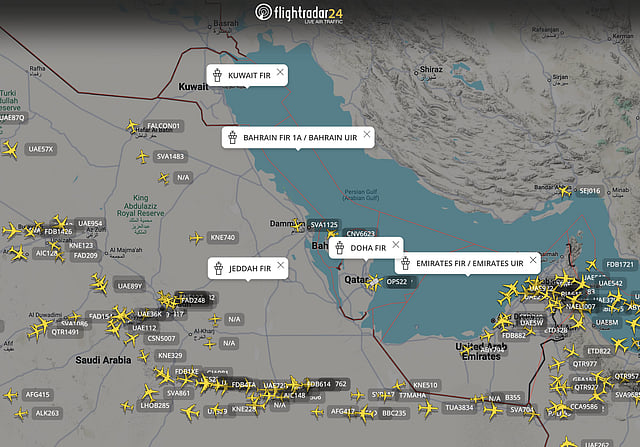By: Isuru Parakrama
June 24, World (LNW): Qatar resumed normal air travel operations early Tuesday (24) after temporarily shutting down its airspace in response to a missile strike launched by Iran targeting a major American military facility near the capital, Doha.
The closure, which lasted several hours on Monday (23), was implemented as a precautionary measure amid rapidly escalating tensions between Tehran and Washington.
The missile attack, which occurred late Monday evening, targeted the Al Udeid Air Base — a critical outpost for the United States military in the Middle East and home to thousands of US personnel.
According to statements from both Qatari and American officials, the majority of projectiles were successfully intercepted, and no injuries or fatalities have been reported.
Iran described the strike as a “direct and unambiguous message” to the United States, asserting that any threat to its sovereignty or territorial integrity would be met with force. The move followed large-scale US airstrikes on Iranian nuclear sites two days earlier, which are widely seen as having triggered this latest exchange.
Elsewhere in the Gulf, other nations including Bahrain and Kuwait had also closed their airspace temporarily on Monday, signalling the depth of regional concern. Several commercial flights were rerouted, including a London-to-Doha service that was forced to return to Heathrow.
Hamad International Airport, one of the world’s busiest hubs for international passenger traffic, returned to full operation following the announcement that Qatari airspace had reopened. The airport typically handles approximately 140,000 travellers per day.
Despite the flare-up, bilateral relations between the United States and Qatar remain stable. Washington continues to regard Doha as a vital ally in the region, citing its support across military, diplomatic, and financial sectors during times of unrest. With roughly 40,000 US troops stationed across the Middle East, bases like Al Udeid remain central to American strategic interests in the region.
Whilst Monday’s events have momentarily settled, observers warn that the situation remains fragile, and further provocations could unravel any tentative steps toward de-escalation.

